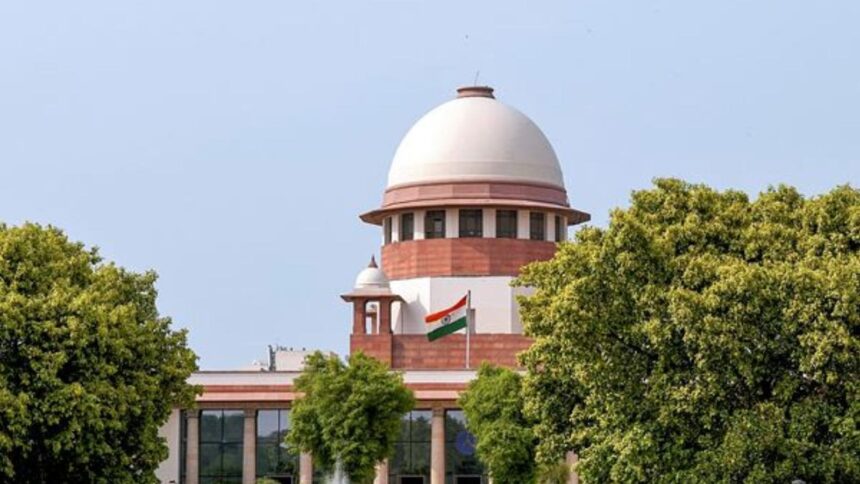The Supreme Court on Friday upheld the conviction of a man for sexually assaulting a minor girl in 2018 but refused to sentence him after noting that they were now married, had a daughter and the victim would be the worst sufferer if the convict was jailed again.
A bench of Justices A S Oka and Ujjal Bhuyan said in its judgement: “We exercise our extraordinary jurisdiction under Article 142 of the Constitution of India and hold that though the accused stands convicted, he will not undergo sentence…”.
The top court had asked the West Bengal government to set up a committee of three experts to meet the victim.
“After having read the reports (of the Committee) and having interacted with the Committee as well as the victim, we are of the view that if we send the accused to jail, the worst sufferer will be the victim herself. As compared to the situation in 2018, she is better placed today. Now she is comfortable with her small family. She, along with the accused, is concentrating on their daughter and they want to ensure that she gets quality education. At the same time, as recorded in the final report, the victim is attending school and is desperate to complete her school education. Though the State has offered to enrol her in some vocational course, she is keen on completing her education, at least up to graduation,” said Justice Oka, writing for the bench.
The court said: “In law, we have no option but to sentence the accused and send him to jail for undergoing the minimum punishment prescribed by the statute. However, in this case, the society, the family of the victim and the legal system have done enough injustice to the victim. She has been subjected to enough trauma and agony. We do not want to add to the injustice done to the victim by sending her husband to jail. We as Judges, cannot shut our eyes to these harsh realities.”
“Now, at this stage, in order to do real justice to the victim, the only option left before us is to ensure that the accused is not separated from the victim. The State and the society must ensure that the family is rehabilitated till the family settles down in all respects,” it said.
The girl was 14 when she left with the man who was then 25. A girl was subsequently born to them.
A delay in the investigation meant the accused was arrested only on December 19, 2021.
A trial court convicted him of offences punishable under Section 6 (aggravated penetrative sexual assault) of the Protection of Children from Sexual Offences Act, and under the IPC Sections 363 (kidnapping), 366 (kidnapping, abducting or inducing woman to compel her marriage etc), 376 (2)(n) (repeated rape on same woman) and 376 (3) (rape on woman under 16 years).
After an appeal, the Calcutta High Court acquitted him on October 18, 2023 of the charges under Section 6 of POCSO and Section 376(2)(n) and 376(3) of the IPC. The court noted in its judgment that the victim’s mother had disowned her and she was residing with the accused along with their child.
But it sentenced him to 20 years in jail for the POCSO offence and four years for offences under the IPC Sections 363 and 366.
The apex court took suo motu cognisance of the matter after certain observations in the HC judgement sparked outrage.
On August 20, 2024, the top court set aside the HC judgement and restored the trial court decision convicting him under Sections 376 (2)(n) and 376 (3), besides Section 6 of POCSO Act. It also confirmed his acquittal under Sections 363 and 366 of the IPC. The court, however, postponed the sentencing.
After perusing the committee report and hearing all parties, the court said: “This case is an illustration of the complete failure of our society and our legal system. All that the system can do for the victim now, is to help her fulfil her desire of completing her education, settling down in life, providing a better education to her daughter and ensuring overall better living conditions for her family.”
The SC said, “this year we have completed 75 years of the Constitution on 26th January. The Constitution contemplates the State to be a welfare state. The Constitution guaranteed social and economic justice to all the citizens. In this case, there is a failure to provide both social and economic justice to the victim. The facts of the case indicate failure of the concept of welfare state. To remedy the situation in this case, it is the obligation of the State Government to act as the true guardian of the victim and her child and ensure that they settle down in life and lead a happy, healthy and constructive life ahead.”
The bench also issued some directions to the state government for the welfare of the girl and child. It also issued notice to the Secretary of the Ministry of Women and Child Development shall appoint a Committee of experts to deal with the suggestions given by the amici curiae in the case.








